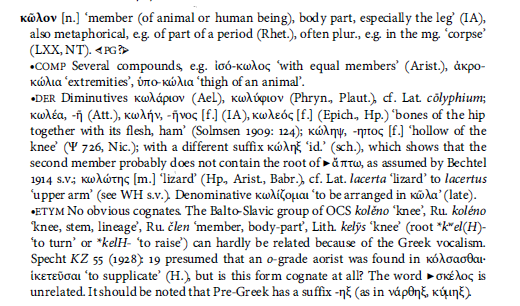I was today years old when I realized that our words period, colon, and comma are just the Greek words for lengths of clauses used as signs for those things in English
sententiaeantiquae.com/2019/11/16/hey…
περίοδός ἐστι λέξις ἀρχὴν ἔχουσα καὶ τελευτήν
#GrammarGeek #Punctuation
οὕτω καὶ τὴν ἑρμηνείαν τὴν λογικὴν διαιρεῖ καὶ διακρίνει τὰ καλούμενα κῶλα
#GrammarGeek #Punctuation
ἡ δὲ τοιαύτη βραχύτης κατὰ τὴν σύνθεσιν κόμμα ὀνομάζεται. ὁρίζονται δ᾿ αὐτὸ ὧδε, κόμμα ἐστὶν τὸ κώλου ἔλαττον
#GrammarGeek #Punctuation
1. I have a billion more things to learn
2. Any time some one criticizes your use of a colon, be like "is it longer than my comma clause? Demetrius rules, man."
#GrammarGeek #PunctuationMatters
I don't make the rules, Demetrius does.
#GrammarGeek #PunctuationMatters
"Dear editor of collection to which my contribution is overdue,
I will be another week late. While editing my work, I found it necessary to reconsider the definition of sentences and spent some quality time with Demetrius' "On Style".
Yours,
J.
Greek kôlon (κῶλον) can mean body part (as in segment, member), so isocolonic can mean having equal-lengthed phrases or equal-lengthed limbs.

But our colon (as in the segment between intestines and anus) comes from Greek kolon (κόλον). To make matters more confusing, later Greek, influenced by the closeness of the two, does present kôlon for the body part.















